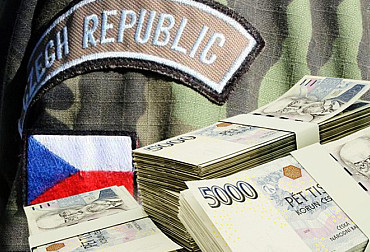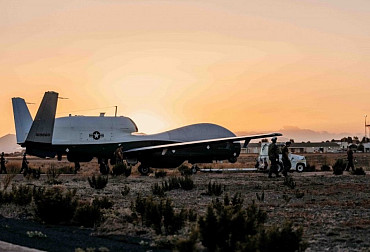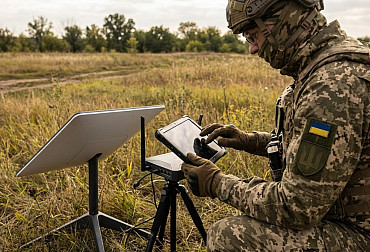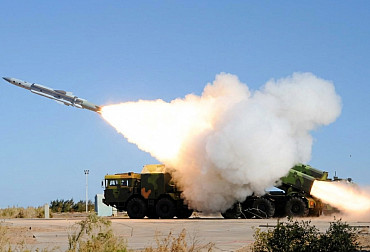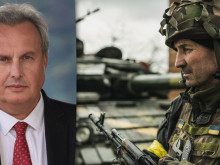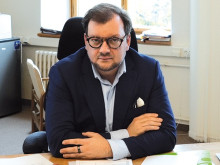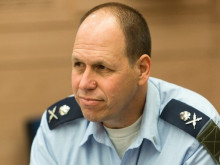General Šedivý: Chasing Russian soldiers with drones is not enough, Ukraine needs to make better use of conventional weapon systems
In an interview on the state of the Ukrainian army, former Chief of the General Staff of the Czech Armed Forces, General Jiří Šedivý, describes what he would do differently as a hypothetical commander compared to the current head, General Oleksandr Syrskyj. Šedivý also talks about the future of the so-called ammunition initiative, the undignified behavior of European leaders towards President Trump, and concerns that bicycle paths might be counted as part of defense spending.
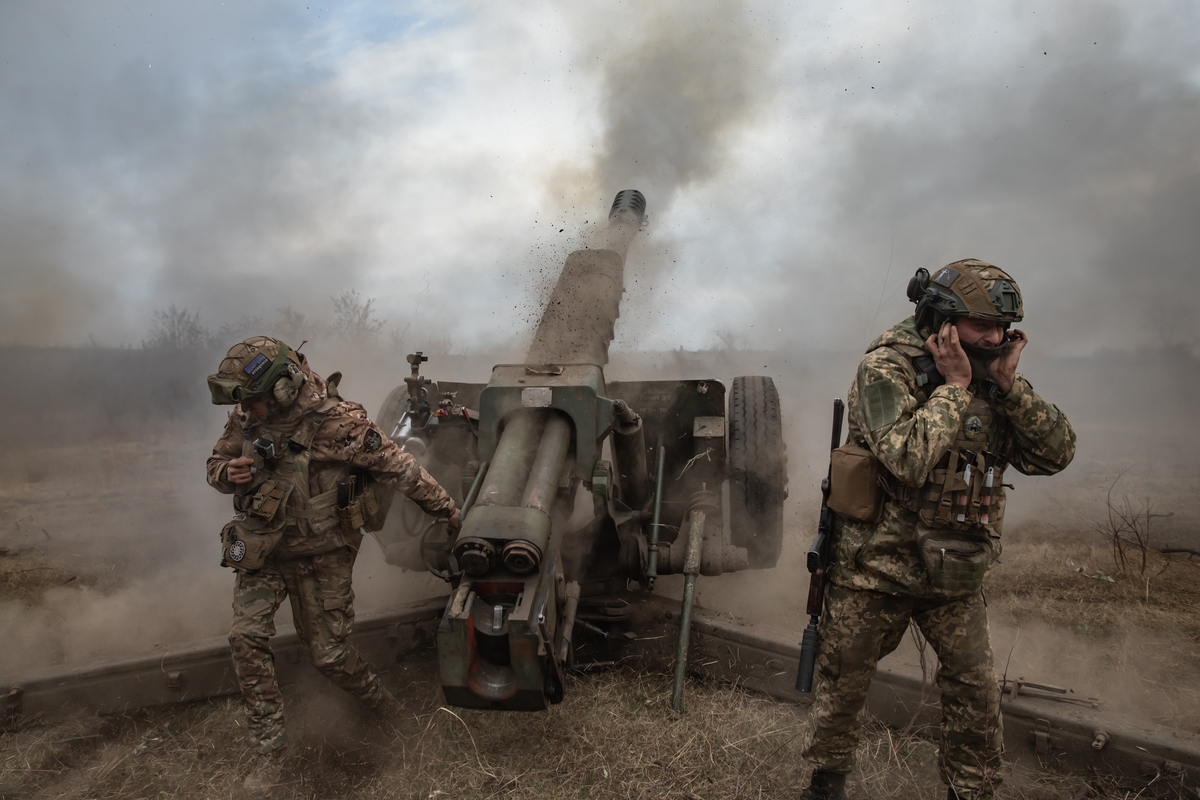
Let's start with a somewhat unconventional thought experiment. What steps would General Šedivý take if he were appointed commander of the Ukrainian armed forces in August 2025?
First, I would assess the real situation on the battlefield. Based on that assessment, I would decide which sections of the front line it would be useful to defend and hold, and which ones it would not. Of course, I would only abandon them once another position had been established to ensure that the Russians could not advance any further.
Secondly, I would do everything in my power to limit the side interests of various entrepreneurs and businessmen so that soldiers receive what they are entitled to. At the same time, I would check whether commanders and staff members are the right people for their positions, whether they are professionally trained and have successful careers suitable for their positions, and that they are not just people who were appointed because they have good friends somewhere. If I were commander of the army, I would also try to link the ground forces much more closely with the air force and other components of the army. There is a lot of talk about cybernetics, space technologies, and so on. Of course, I would try to bring as much new technology into the army as possible, which are not necessarily just drones, as is sometimes narrowly defined, but those that the army really needs and will fulfill the role they are supposed to fulfill.
In terms of combat activities and strategy, I would continue what the Ukrainians are doing today, which is to destroy or limit the Russians' ability to produce and transport weapons, ammunition, spare parts, etc., to their forces on the battlefield. In other words, cut off the combat line from the logistics line. This does not mean that strikes will be carried out at any cost a thousand or two thousand kilometers away, but rather that I would focus on areas closer to the front line. This is because at shorter ranges, say a hundred, two hundred, or three hundred kilometers, the Ukrainian army has more resources than it does to carry out a single perfect strike a thousand kilometers from the front. But that may not be the most effective approach. Of course, I'm not ruling out deep strikes. But the fact is that if the Russians are hit, say, at a refinery, they will replace its capacity with another one. If the battlefield could be isolated, I believe that would have a greater effect.
You mentioned several factors, or areas, that you, as the hypothetical commander of the Ukrainian army, would do differently than the current leadership. Let's break them down in more detail. So, in your opinion, the Ukrainians are unnecessarily holding certain sections of the front line and bleeding there, and in the end they will have to withdraw anyway? Which ones do you mean?
Today, the main areas mentioned in this context are Pokrovsk, Kupiansk, and some other towns defended by the Ukrainians. We are looking at this from Prague, so we naturally see things differently, but what was the point of defending Mariupol for so long when everyone knew it could not be held? The thousands of soldiers who died or were captured there could not then fulfill their role where they were needed. As a result, they were missing during the subsequent fighting. The same problem arose with Bakhmut. The argument that they are defending themselves in order to inflict as many losses as possible on the Russians is formally correct, but at what cost? Today, this is the issue in Pokrovsk. I don't know if the Ukrainians have a well-built second line of defense. They have been fighting there for a long time, so they should have one. In short, it is necessary to have critical points assessed and a retreat maneuver prepared, which must take place at a position that is well prepared.
You also mentioned the incompetence of some members of the Ukrainian army's command structure...
Reports from the soldiers themselves indicate that some Ukrainian army commanders are not up to the task and are causing great losses to Ukrainians through their poor decisions. An example of this was the entire plan for the Kursk operation, where the commanders succumbed to political pressure. In the end, this not only cost a huge number of lives and material, but the Kursk operation also had a negative impact on the morale of Ukrainian soldiers and citizens when the Ukrainian troops were eventually pushed out.
In your opinion, do Ukrainians lack sufficient coordination between their ground forces and air forces?
First, a new concept for the use of armored vehicles must be developed. It would be wrong to say today that armored combat vehicles have no place on the battlefield. Any means of protecting soldiers are good, but they cannot be used en masse as they were in the past. It is necessary to create formations that defend the main weapon systems and enable them to fulfill their tasks. This means, for example, that each such vehicle must be well defended against drone strikes and observation so that it is not subsequently destroyed by artillery or air strikes. I believe that the Ukrainians have major weaknesses in this area. We can find "thousands" of different videos on the internet showing drones chasing soldiers across fields. But that's not enough. I believe that the potential of conventional weapons is simply not being fully exploited. This also applies to the air force, which they do have, but which is mostly used for operations against drones.
They don't want their planes to be shot down!
It has to go hand in hand. Ukrainians keep talking about Patriot systems, anti-aircraft, and anti-missile systems. But they also need to defend their combat formation properly. Of course, I am aware that this is complicated and that it is easy for us to say from Prague, as I mentioned above. But today, combat formations must be much more complex, and the performance of weapon systems that use kinetic means of destruction, such as cannons, machine guns, surface-to-surface missiles, but also military air strike assets, combat helicopters, etc., must all be truly interconnected and protected by support systems, including radio-electronic warfare assets. In the end, the most important thing is the "foot soldier," whether you like it or not, who comes with a flag in his hand and raises it somewhere on a hill. And everyone must do everything they can to get him there and raise that flag.
In your assessment of the Ukrainian army, however, you did not mention the issue of the shortage of Ukrainian soldiers and the issue of mobilization. This is a major topic in Ukraine.
But that is not a problem for the military command! It is a problem of strategic defense management. However, as commander of the army, I would put pressure on the state leadership to consistently implement mobilization tasks and, at the same time, put pressure on its allies to ensure that Ukrainians capable of military service are sent back to Ukraine. And that is not happening. This is also because it is not only the Czech Republic that benefits from the Ukrainian workforce on its territory. President Zelensky should put pressure on his allies to create the legislative conditions for Ukrainians capable of military service to be sent back to Ukraine. In my opinion, this would largely solve the problem of replenishing the Ukrainian army. I am aware of the fact that not only the Czech Republic would face labor shortages in certain segments of the economy, but if the mobilization system for replenishing the Ukrainian army collapses, all previous aid to Ukraine will be in vain.
Let's stay with the issue of human resources in the Ukrainian army. Last time, you told me that Ukraine would need a functioning foreign legion. However, it does not seem that anything has changed in this regard, quite the contrary. Foreign fighters are not heading to Ukraine on a large scale. War reporter Matyáš Zrno, who recently returned from the front lines in Ukraine, told me that this is because it is a complete massacre there, which veterans from Afghanistan or Iraq are simply not used to and do not want to undergo. Is that right?
Afghanistan, Iraq, and Syria were places where there was absolute superiority. It was an unequal fight where we had total air superiority. In Ukraine, it's completely different. Today, the Russians don't have the same air superiority they had at the beginning of the conflict, but they still have it, and the intensity of the fighting itself is incredibly high. It should also be mentioned that the experiences of foreign soldiers who joined the foreign legion as volunteers were very negative. Ukrainian commanders did not trust them, and the entire Ukrainian army system was not prepared for this.
How do you perceive the European Commission's customs agreement with the United States? Did Europe have to give in to Trump in order for the US to keep its security umbrella over Europe and be more active in supporting Ukraine?
Trump's pressure on Europe was strong, and European countries began to behave quite submissively. The entire NATO summit in The Hague was like arriving at the Vatican to kiss the Pope's ring. In my opinion, it was undignified: we would rather shorten the summit so that President Trump would not get angry that it was too long and leave prematurely. If he had left, we wouldn't have gone crazy and could have continued the negotiations. Everyone came and, except for Spain, agreed to spend 5% of GDP on defense. I agree with the increase because there are reasons for it. But if Trump hadn't said 5%, everyone would have said 3%, which was what had been discussed before...
Okay, but that 5% also includes spending on infrastructure and broader security, which is again a bit of European shirking.
It's 1.5% to increase the country's defense capabilities. We just need to wait and see how individual countries actually respond. To caricature it a little, we can't use it to build cycle paths for soldiers to ride their bikes on. Nor can things that are not related to national defense be included in that 1.5%. In addition, aid to Ukraine will also be included. It's a nice idea, but in essence it means that part of the Czech Republic's defense budget will go to Ukraine, and the justification will be that we are defending the Czech Republic and that the army will be short of these funds.
Do you think that after the autumn elections, the so-called ammunition initiative and, more generally, aid to Ukraine will continue? National Security Advisor Tomáš Pojar told me that any government that cares about the interests of the Czech Republic should support this initiative, because it is not just about helping Ukraine, but also about relations with the partners with whom we are participating in it, and ultimately it is also good business for Czech arms manufacturers. But ANO representatives say that they will cancel the ammunition initiative after the elections if they form a government.
I believe that the ammunition initiative will continue, and it doesn't matter whether Mr. Babiš, if he becomes prime minister, calls it the ammunition initiative or the NATO initiative. Babiš will skillfully use his behavior and approach to such issues, saying that it had to be reworked, adding some commentary, but in the end, it will be his flagship policy during this period. I believe that for various reasons, the initiative will continue in some form. Whether we like it or not, the ANO movement is still a democratic party. But let's wait and see how the elections turn out. The rhetoric and communication style will probably change, but there is no threat of a Slovak or Hungarian scenario in our country. The Czech mentality and approach to Russians, formerly the Soviets, is completely different from that of the Slovaks, for example.











